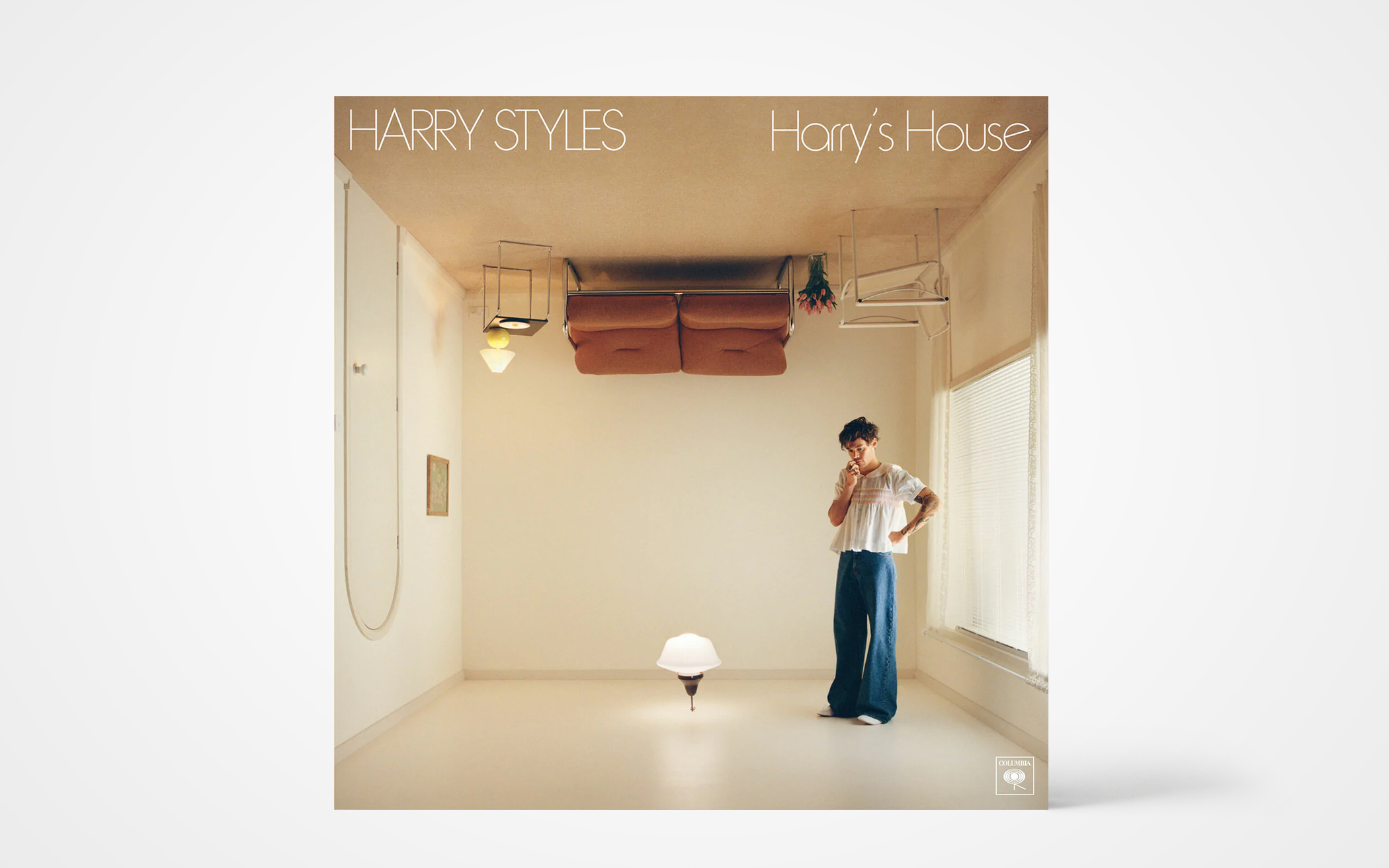Pop-star Harry Styles is a bit of an enigma. He has some lingering stigma from being a member of One Direction—one of the most successful boy bands of all time. But he’s also now three albums deep into a career all his own. It’s easier to define him by what he is not than what he is: he is not a typical former boy-band member gone solo, as he is not chasing or creating any large pop culture trends; he is not an artsy outsider using his fame and goodwill to completely subvert expectations; clad in Gucci, he’s not like you and me and does not bother trying to wear the type of everyman persona that other pop stars do to convince us otherwise; he’s not macho but not wholly unmacho; he’s an actor, but he’s not Elvis; and he’s certainly not boring.
All of these things that Harry Styles is not become a little clearer and definable on his third solo album, Harry’s House, released in May 2022. With an unusual creative timeline given Styles’ inability to tour 2019’s Fine Line as originally scheduled due to the COVID-19 pandemic, Harry’s House captures Styles more at home—literally (or as literally as possible for someone who has been rich and famous since they were 16 years old and has a unique concept of home) and figuratively, as the show-stopping free time allowed Styles to introspect and find a sense of home within himself.
Home for Harry Styles sounds free and fun at the same time that it sounds precise and exacting, recalling the sounds of 1970s funk for much of the tracklist. Bass lines thump and slap around vocal runs and exuberant horn arrangements in the type of perfectly composed looseness fitting for a goofy young guy who has had his entire adolescence and adulthood scheduled for him. There has been no greater sense of home for Harry Styles than music itself, and he’s able to make a place all his own in familiar sounds and clear influences, nowhere better than the earworm “As it Was” that sounds a lot like a-ha’s “Take on Me.” Styles has spoken in interviews about how writing an album within the close confines of his in-studio COVID bubble and without the normal deadlines allowed him to write exactly what he wanted, and while Harry’s House does not sound wildly different from his previous two albums, it does have a more assured and comfortable energy throughout. It’s the most light- and breezy-sounding music that will also fill a residency in Madison Square Garden you are likely to hear.
Styles tends to write broadly and is usually most successful when he’s writing about the sensual, capturing the innate desire and pleasure of being hungry and horny. He continues this on Harry’s House while adding a more personal specificity than ever before as he recalls past relationships through their geography and their meals. Memory is the most powerful tool for anyone's sense of self, and Styles uses it here to great effect, only losing his grip when the album slips into lyrics about love and relationships that are so general they become completely anonymous.
Though much of Harry’s House is about himself, the album does contain songs that face outward toward his fans. His fan base is primarily young women, and he treats these fans with a directness and dignity that fandoms made of women have not always received. “Matilda,” which affirms and encourages a woman who is at odds with her family, is as if Paul McCartney wrote directly to his character in the Sgt Pepper’s song “She’s Leaving Home” rather than just telling her story. “Boyfriends” speaks to relationships that have failed or struggled due to the shortcomings and shortcuts that often come between masculinity and true intimacy. The pandemic might have paused the show, but while looking inward Styles still keeps an eye toward the stage and the people who put him there.
Harry Styles opens up more of himself in Harry's House, but the generic love songs and messages to his fandom keep him at the distance of an enigmatic pop star. A more vivid picture of who Styles is occasionally appears on Harry’s House before retreating back to the negative space. Perhaps this is so that more people might find a home within the slickness of the music and the big tent of a pop album, or perhaps he has not quite found one for himself just yet. (Columbia Records/Erskine)
About the Author
Jordan Petersen Kamp graduated from Calvin University in 2017. He now works as an auditor and writes freelance as often as he can. He attends Sherman St Church in Grand Rapids, Mich.

